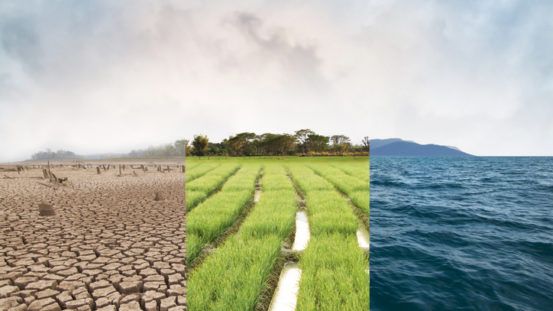The Taskforce for Nature-related Financial Disclosures (TNFD) has released the first draft framework for companies to report on their impact on nature, marking the beginning of an 18-month consultation process before it is finalised for the September 2023 deadline.
Recognising the link between climate change and nature loss, the TNFD risk management and disclosure framework is in line with the requirements of the Taskforce for Climate-related financial Disclosure (TCFD), which is being rolled out for many companies across the UK this year.
The TNFD draft framework asks preparers to apply four general requirements for the preparation of disclosures that cut across all four pillars of the disclosure recommendations:
- Identification of material nature-related risks and opportunities should be based on an assessment of nature-related dependencies and nature impacts;
- Consideration of the organisation’s interface with nature at specific locations should be integral to the assessment, recognising that nature-related dependencies and nature impacts occur in specific ecosystems;
- Consideration should be given to how the organisation ensures that the correct skills and competencies are available to assess nature-related risks and opportunities, and oversee strategies designed to respond to those risks and opportunities; and,
- A statement should be provided regarding the scope of current disclosures and what further disclosures are planned in the future.
The TNFD has also supplied foundational guidance, including key science-based concepts and definitions, to assist market participants in understanding nature and nature-related risks and opportunities, as well as practical guidance on nature-related analysis for financial institutions to consider incorporating into their enterprise risk and portfolio management processes.
See also: – Biodiversity: A whole ecosystem of business activities
It is also designed for future alignment with the global baseline for sustainability standards under development by the International Sustainability Standards Board (ISSB), where draft proposals are expected in Q2 this year, but also providing flexibility for organisations that need to report to different materiality thresholds and/or meet regional regulatory requirements.
The TNFD statement highlighted half of the world’s GDP is moderately or highly dependent on nature and its services, financial institutions and businesses can no longer afford to overlook nature in strategy, risk management and capital allocation decision making due the risks posed businesses, investors, and lenders. However, there are also new business opportunities related to contributing to nature-positive outcomes.
David Craig, co-chair of TNFD, said: “Building an improved understanding of nature and nature-related risks and opportunities is a critical enabler of better corporate strategy, better capital allocation decisions, better governance, and better risk management and disclosure practices. With climate change and nature-related impacts and risks increasing, it is essential companies incorporate natural assets into their strategic planning and risk management if they are going to succeed.
“The approach we are taking of developing this guidance with market participants through an iterative, open innovation process over the next 18 months will help to ensure our final recommendations are both science-based and practical to implement. We invite all market participants and stakeholders to review this first prototype of the framework and share their feedback.”
See also: – Biodiversity Outlook 2022: We need clear targets and data
Co-chair Elizabeth Mrema added the TNFD hopes governments agree on an “ambitious and effective” post-2020 Global Biodiversity Framework during the negotiations of which are taking place this week in Geneva. This, she said, can then inform the metrics and targets work the Taskforce will continue to develop in the coming months.
“The process towards the Global Biodiversity Framework and the TNFD are two key initiatives, among others, that support a shift in global financial flows away from nature-negative outcomes and toward nature-positive outcomes.”
Reaction

Dr Vian Sharif (pictured left), founder of NatureAlpha, and newest member of the ESG Clarity Committee, called the beta framework an “exciting step”.
“Nature must be considered if we are to address the climate challenge and an agreed structure to enable investors to do this is sorely needed. The Taskforce on Nature-related Financial Disclosure’s first beta version of the framework is an exciting step in supporting a unity of purpose to tackle systemic risk to economic stability and resilience. There is growing awareness that climate and nature risks must be priced into investments – neither can be ignored if institutions want to solve and adhere to their climate change commitments.”
Meanwhile, Dr Richard Mattison, president of S&P Global Sustainable1 said: “As a member of the TNFD taskforce, I am delighted to support the release of the first beta version of the TNFD framework. Against the backdrop of net zero commitments from investors and companies, it is essential that net zero for climate should be net positive for nature. More than ever, investors and companies seek evidence-based insights, high quality data and advanced analytics from credible providers, including S&P Global Trucost, to support the decisions driving their strategies linking nature and business performance. The TNFD framework will be the key to unlocking better understanding, analysis and action around nature-related risks.”
To view the full beta framework click here.
A further three iterations of the beta versions are planned for release in June 2022 (v0.2), October 2022 (v0.3) and February 2023 (v0.4). This will culminate in the final release of the TNFD’s recommendations (v1.0) planned for September 2023.








